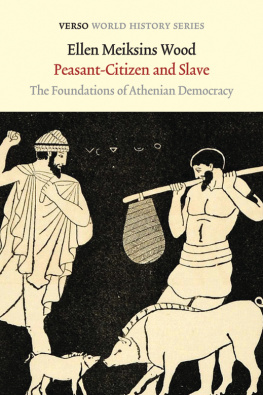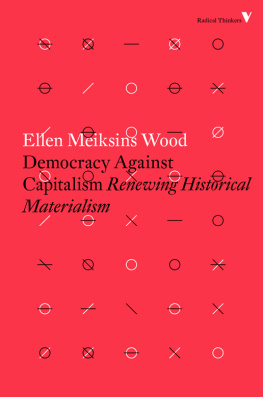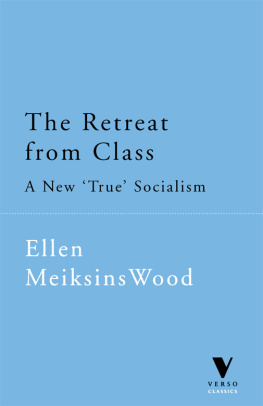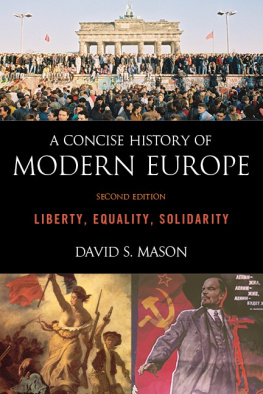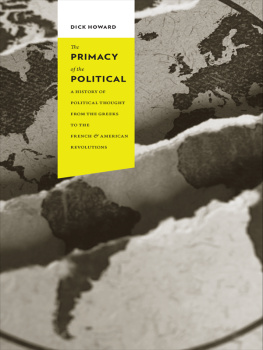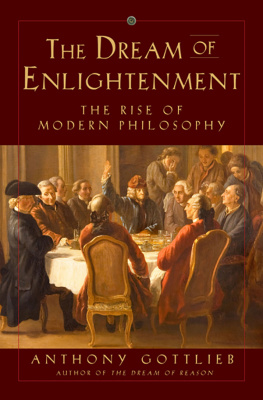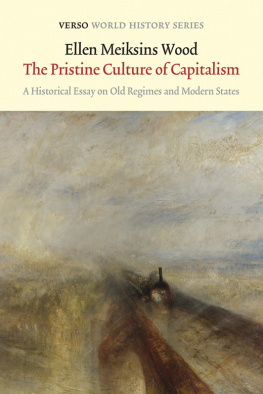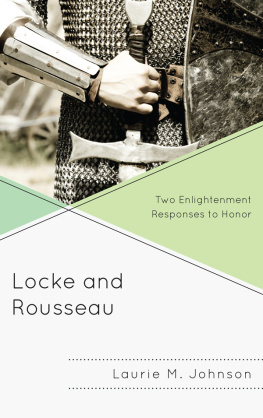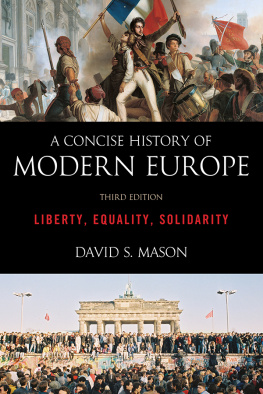
LIBERTY AND
PROPERTY
A Social History of Western Political Thought
from Renaissance to Enlightenment

Ellen Meiksins Wood

First published by Verso 2012
Ellen Meiksins Wood 2012
All rights reserved
The moral rights of the author have been asserted
1 3 5 7 9 10 8 6 4 2
Verso
UK: 6 Meard Street, London W1F 0EG
US: 20 Jay Street, Suite 1010, Brooklyn, NY 11201
www.versobooks.com
Verso is the imprint of New Left Books
Epub ISBN-13: 978-1-84467-842-6
British Library Cataloguing in Publication Data
A catalogue record for this book is available from the British Library
Library of Congress Cataloging-in-Publication Data
A catalog record for this book is available from the Library of Congress
Typeset in Sabon MT by Hewer UK Ltd, Edinburgh
Printed in the US by Maple Vail
For Ed
CONTENTS
ACKNOWLEDGEMENTS
I am finding it more difficult than usual to thank all the many people who have, in one way or another, helped me with this book. The early modern period covered in this volume has been a special preoccupation of mine since I first started reading, then writing and teaching, the history of political thought nearly half a century ago; and everything I have written about contemporary capitalism, imperialism and democracy has been informed by my reflections on that earlier historical moment and by years of conversation with colleagues, friends and students who may never have seen a single page of this book. My greatest debt remains to Neal Wood, who died some years before I started working on it.
My particular thanks must go, of course, to those who read the whole manuscript: Perry Anderson and George Comninel, whose comments have, as on other occasions, been no less generous than trenchant, and Ed Broadbent, to whom this book is dedicated, who again superbly played the role of intelligent general reader with his customary insight and unflagging support.
I also owe thanks to Frances Abele, Robert Brenner and David McNally, who have read parts of the manuscript or allowed me to try out bits of it on them. And then there are those who advised me on (and who were acknowledged in) previous related works, including editors who commented on and/or permitted me to use some of my earlier publications, parts of which have inspired or been absorbed into this book: The State and Popular Sovereignty in French Political Thought: A Genealogy of Rousseaus General Will , History of Political Thought IV.2, Summer 1983, pp. 281315; Locke Against Democracy: Representation, Consent and Suffrage in the Two Treatises , History of Political Thought XIII.4, Winter 1992, pp. 65789; Radicalism, Capitalism and Historical Contexts: Not Only a Reply to Richard Ashcraft on John Locke, History of Political Thought , XV.3, Autumn 1994, pp. 32372; A Trumpet of Sedition: Political Theory and the Rise of Capitalism, 15091688 (London: Pluto Press, and New York: New York University Press, 1997 this book was coauthored with Neal Wood, although the sections on the seventeenth century used in the present volume were written by me); Capitalism or Enlightenment?, History of Political Thought XXI.3, Autumn 2000, pp. 40526; Why It Matters, London Review of Books , vol. 30, no. 18, 25 September 2008.
Finally, a note on sources: I have tried to keep the number of footnotes under control and make it easier for readers to locate citations from the political thinkers discussed in this book. Instead of footnoting page numbers from one particular edition or translation I have, wherever possible, cited the original chapter, section and paragraph numbers that can be found in any standard editions of the works quoted. Where such citations may not be specific enough, I have included footnotes with page numbers (as in the case of works by Bodin and Rousseau in Chapter 6); and, for readers who would like to identify specific translations, here is a list of the translated works that, in subsequent chapters, will be cited without footnotes in the body of the text:
John Calvin, Institutes , transl. H. Beveridge (Edinburgh: Calvin Translation Society, 1845).
Niccol Machiavelli, The Prince , transl. W.K. Marriott (London and New York: Everymans Library, 1992); The Discourses , transl. L. Walker (Harmondsworth: Penguin Books, 1983); History of Florence and the Affairs of Italy (New York: Harper Torchbook, 1966).
Charles-Louis de Secondat, Baron de Montesquieu, The Spirit of the Laws , transl. T Nugent (New York: Hafner, 1962).
Benedict Spinoza, The Political Works , transl. A.G. Wernham (Oxford: Oxford University Press, 1958).
Francisco Vitoria, Political Writings , eds. A. Pagden and J. Lawrance (Cambridge: Cambridge University Press, 1991).
TRANSITIONS
The decline of feudalism and the rise of capitalism, from its agrarian origins to the early phases of industrialization; the religious ruptures of the Reformation; the evolution of the nation state; the growth of modern colonialism; cultural landmarks from the Renaissance to the Age of Enlightenment; modern philosophy and a scientific revolution, rooted in the empiricism of Francis Bacon or the rationalism of Rene Descartes all these momentous historical developments, punctuated not only by wars among states but by popular uprisings, rebellions and revolts of various kinds, up to and including civil war, have been ascribed to the so-called early modern period.
It may not be surprising, then, that the canon of Western political thought is disproportionately populated by early modern thinkers. While historians may differ about the inclusion of this or that name, the period has more than its share of towering figures from Machiavelli or Hobbes to Locke and Rousseau whose canonical status is as unassailable as that of Plato or Aristotle. Yet all the historical landmarks that mark out the era and even their conventional names Renaissance, Reformation, Enlightenment, to say nothing of feudalism or the rise of capitalism regularly provoke controversy among historians. So, for that matter, does the designation early modern itself. It seems, on the face of it, a fairly innocent, if imprecise, descriptive label indicating rough chronological boundaries, somewhere between the middle ages and full-blown modernity. We shall use the label here in that more or less neutral sense, just for the sake of simplicity and for lack of anything better. But there is more at issue than chronology. Whatever dates we settle on let us say approximately 1500 (or 1492?) to 1800, or maybe 1789 or even 1776 the early modern presupposes an idea of the modern, as distinct from the ancient, the medieval or at least the pre-modern, an idea of modernity that raises questions of its own.
Much intellectual effort has been expended on clarifying the idea of modernity, and we shall, in what follows, have occasion to confront some of the questions it poses. For the moment, it is enough to say that, although there has been disagreement about what exactly constitutes the modern and whether it is good, bad or morally neutral, there is, in Western culture, a deeply rooted and tenacious conception that cuts across divergent schools of thought which may agree on very little else. Even when sharp distinctions are made among various national histories, there remains a single, overarching narrative of European history and the advent of modernity, a narrative defined by discontinuities and at the same time transitional processes, passages from one age to another marked by fundamental transformations.
Next page



